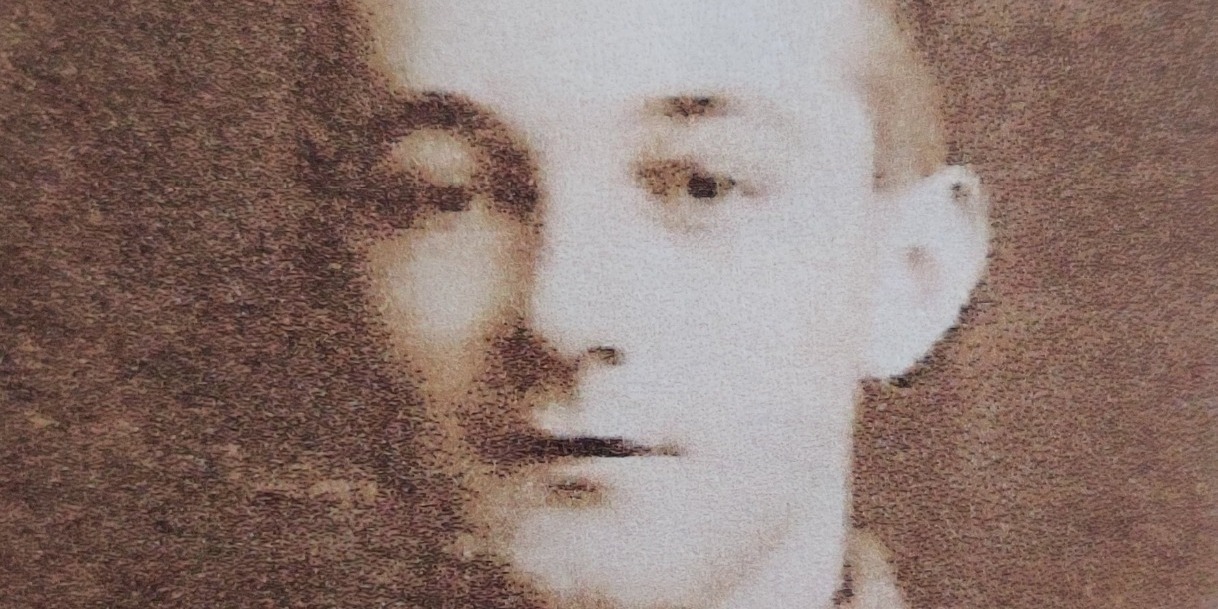Finding moments of joy in times of crisis - the story of Hugh Melling
Posted on 17th August 2020 at 10:06
Hugh Melling was a Private in the 18th Battalion, Lancashire Fusiliers. Hugh, a soldier of the Great War, was sent to France in 1918, but was killed in the final skirmishes of the war - one week before the armistice was signed.
He was just 19 when he died. His mother, Alice Melling, was leaving the house to celebrate the armistice, before finding out through a telegram that her son was killed in Ors on 4 November 1918.
Thousands of mothers suffered the same anguish as Alice. Telegrams were circulated across the country, informing mothers that they had lost their sons in battle. These telegrams arrived on doorsteps like poisonous darts, destroying any hopes of reunion.
Famously, the poet Wilfred Owen died in the same battle as Hugh, and Wilfred’s mother also suffered the same fate as Alice - a telegram placed in her hands, just as she left the house to celebrate the end of war.
Luckily, the letters sent home by Hugh while he was in northern France have been kept and I have got transcribed versions sat on my desk.
These letters have given me solace in recent weeks. War diaries and letters offer unexpected parallels with today. Even though the current crisis is very different to the crisis endured by Hugh and his family, familiar feelings are experienced.
The letters are episodic by their nature and they are often hastily written in pockets of time during a busy day.
They encompass so much feeling and are incredibly expansive, not in the sense that they are well thought out, but in the sense that they are messy accounts of both the hardships and the pleasures on the battlefield. Even in times of immense difficulty, it is possible to grasp moments of joy.
The letters were sent to his parents and initially, his main concerns were about being split up from his friends. But despite this anxiety, on 2 October Hugh writes: “We are having a very good time here.”
His letters are affectionate and staying connected with those back home is clearly very important to Hugh. He often writes about exchanging both letters and photos with girls and boys back home.
Life as a Private in northern France could be extremely testing. Speaking of the food he gets, Hugh reveals: “I have not yet received your parcel but I am very anxiously waiting for it as we don’t get so very much to eat here … it isn’t quarter enough for a chap to live on.”
A lack of food is a common theme in his writing and food parcels sent by his mother were well received.
“When you send me the next parcel please put me a tin of Nestles milk and about a pound of oatmeal and a bit of salt so that I can make a bit of porridge for a bit of supper at night.”
Interestingly, Hugh’s address changes frequently as he moves location. And it was this “shifting,” as he calls it, which was one of his greatest annoyances.
“I am ready for being home again already for it nearly kills you when you have a full pack here it is about 90lbs or more.
“The railways here are very poor we came in like cattle trucks down here every time the train went over a joint in the line it made a jump like as if there was a brick in the way”
The living conditions were another pain point: "We are in a tent … the first night we had twenty one in, hardly room to stir. It is up to the neck in muck.”
The tragedy of these letters is that Hugh expresses his feeling that the war will be over soon. He hopes that it will be over before he has finished his Lewis gun course, so he doesn’t have to join the rest of his battalion on the frontline.
Hugh’s final letter, dated just 5 days before his death, is one of his most affectionate. He writes about being with his friends and receiving letters from those back home.
A story of happiness and heartbreak, Hugh’s life ended far too soon, but his letters sent from France prove that moments of joy can be captured in adverse circumstances.
Share this post:

